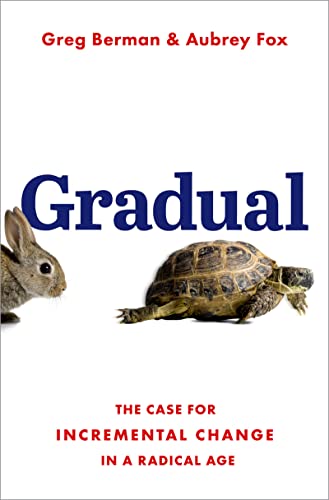Gradual: The case for incremental change in a radical age
Oxford University Press, £22.99 hb, 232 pp
Too early to say
'It is too early to say’ was the legendary response of Zhou Enlai when Dr Henry Kissinger asked him about the effects of the French Revolution – proof, if needed, of an ancient culture acknowledging the long cycle of history. Except Zhou misheard. As Chas Freeman, the retired foreign service adviser at that historic meeting revealed many years later, Zhou assumed that Kissinger was talking about the 1968 student protests in Paris, not the storming of the Bastille. It was, said Freeman, a mistake ‘too delicious to invite correction’.
The French Revolution has long reverberated in arguments about politics. Perhaps Kissinger was curious how his Chinese counterpart found the hard and patient work of government after decades as a revolutionary. For Edmund Burke, the lesson was always clear: as his Reflections on the Revolution in France contended, no good can come from the violent overthrow of the existing order. For Burke, social and political change must be gradual if it is to be legitimate and endure. Governing needs the consent of the governed. On this foundation Burke established a philosophical tradition of conservative thought.
In Gradual, two American policy advocates challenge the idea that incremental policy is inherently cautious. Drawing on their experience in the legal system, they present the case for gradualism. American democracy, they suggest, endures because political leaders learn how to compromise and advance change over time. The constitutional division of power favours gradual reform over radical attempts to change society.
Continue reading for only $10 per month. Subscribe and gain full access to Australian Book Review. Already a subscriber? Sign in. If you need assistance, feel free to contact us.
















Leave a comment
If you are an ABR subscriber, you will need to sign in to post a comment.
If you have forgotten your sign in details, or if you receive an error message when trying to submit your comment, please email your comment (and the name of the article to which it relates) to ABR Comments. We will review your comment and, subject to approval, we will post it under your name.
Please note that all comments must be approved by ABR and comply with our Terms & Conditions.